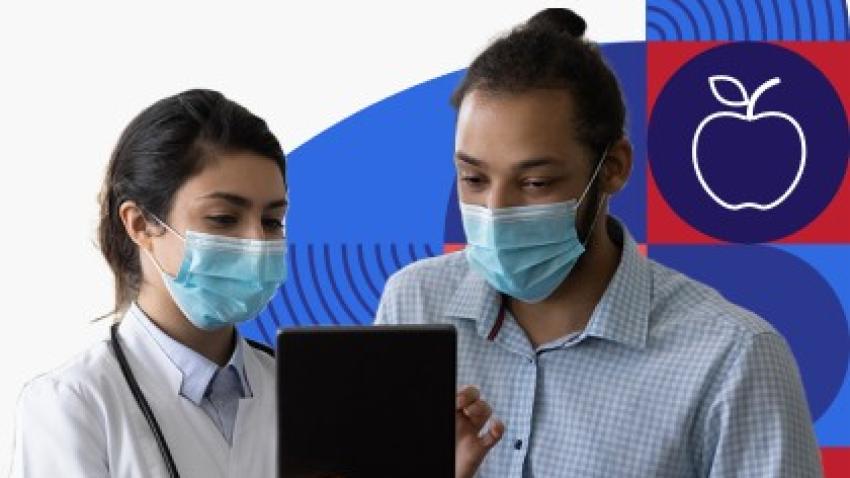Health Conditions
Prostate Cancer Screening: Questions for the Doctor

Prostate cancer is the second most common cancer in men in the United States. It’s more common in older men than younger men.
Depending on your age and other factors, your doctor may recommend getting screened (tested) for prostate cancer — like with a prostate-specific antigen (PSA) test.
If you’re age 55 to 69 years:
- The decision to get screened is a personal choice that you can make after talking with your doctor about the risks and benefits
- You might decide that you’re okay with the risks of getting screened, or you might decide the risks aren't worth it
- Together, you and your doctor can decide what's right for you
If you’re age 70 years or older:
- Prostate screening isn't recommended because the risks outweigh the benefits for most people in this age group
- This is true even if you’re at a higher risk for prostate cancer
Many people have questions about prostate cancer screening. The information below can help you start a conversation with your doctor or nurse about the risks and benefits of screening.
What is the prostate?
The prostate is a gland that helps make semen (the fluid that carries sperm). It’s located below the bladder and in front of the rectum.
Who's at risk for prostate cancer?
Anyone with a prostate can get prostate cancer. But the risk is higher if you:
- Are age 50 years or older
- Are African American
- Have a father, brother, or son who had prostate cancer
- Have mutations (changes) in genes called BRCA1 and BRCA2
- Have certain inherited cancer syndromes, like Lynch syndrome
What are the risks and benefits of prostate cancer screening?
Prostate cancer screening can find prostrate cancer early — when it’s easier to treat. But like all screening tests, prostate cancer screening can also have risks. Here are some things to consider when deciding whether to get screened:
- Many prostate cancers grow so slowly that men won't have symptoms or die from the cancer
- Treatment for prostate cancer can cause problems like erectile dysfunction (impotence) or loss of bladder control
- Prostate screening sometimes says you have cancer when you really don’t, and follow-up tests can cause problems like infections
Learn more about prostate cancer screening.
What do I ask the doctor?
When you visit the doctor, it helps to have questions ready ahead of time. You can also ask a family member or friend to go with you to take notes.
Consider taking this list of questions to your next appointment.
- Am I at high risk for prostate cancer?
- Are there things I can do to lower my risk for prostate cancer?
- What are the risks and benefits of prostate cancer screening and treatment for me?
- Are there any warning signs or symptoms of prostate cancer to look out for?
- If the results of the screening test show that I might have prostate cancer, what are my options for diagnosis and treatment?
Content last updated July 22, 2024
Reviewer Information
This information on prostate cancer was adapted from materials from the Centers for Disease Control and Prevention and the National Cancer Institute.
Reviewed by:
Rebecca Chasan, PhD
Chief, Science Writing and Review Branch
National Cancer Institute
National Institutes of Health
Ann Pluta, PhD
Scientific Communications Editor, Office of Communications and Public Liaison
National Cancer Institute
National Institutes of Health


